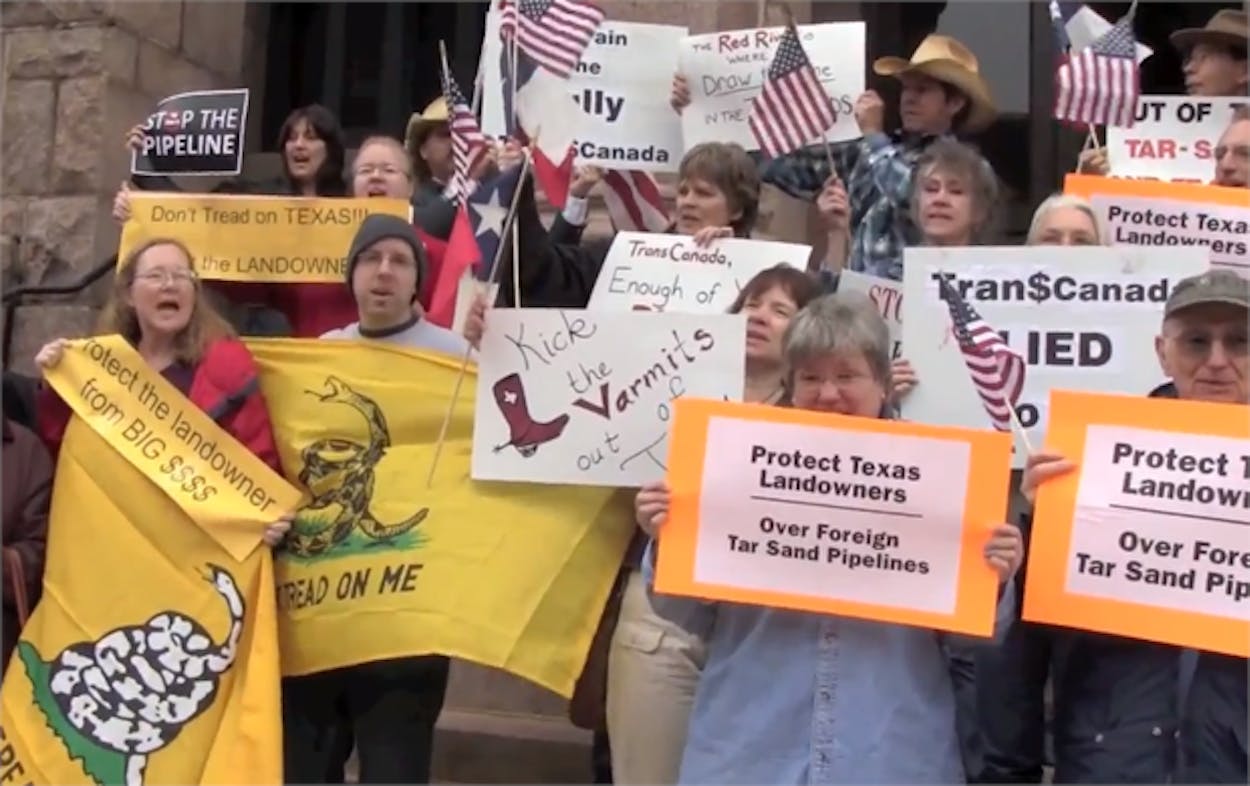Texas is emerging as the new Nebraska in the Keystone XL debate, after a heated protest against the pipeline erupted in Paris last week.
Leading the charge is “a property rights coalition that flexed its muscle during the last decade to upend one of Perry’s most ambitious projects, the Trans-Texas Corridor,” writes the Fort Worth Star-Telegram‘s Dave Montgomery:
The pipeline dispute seems certain to reopen a legislative debate over eminent domain powers, which governmental entities and so-called common carriers such as utilities and pipelines use to acquire land for public projects after compensating the owner.
A company spokesman told Montgomery that “the company has obtained 99 percent of the easements needed to build the pipeline in Texas, with only 19 tracts outstanding.” And one of those outstanding tracts belongs to landowner Lamar County farmer Julia Trigg Crawford, whose battle with TransCanada sparked the protests in Paris (and a supporting one on the Capitol steps in Austin).
StateImpact Texas‘ Terrence Henry wrote about the legal showdown between TransCanada and Crawford, who doesn’t want the pipeline routed through her 600-acre farm. While the company prevailed in its eminent domain claim against Crawford, she fired back by filing a temporary restraining order that barred the company’s employees from coming onto her land.
“My hope is that our state leaders will see that their landowners are being bullied,” Crawford told the paper.
But, as Montgomery noted, the pipeline has the support of most major Texas politicians (including Governor Rick Perry and U.S. Senators Kay Bailey Hutchison and John Cornyn) and business interests.
Local business leaders in East Texas also back the 376-miles of pipeline that will run through that part of the state. “There is not a politician in Texas in their right mind — I don’t care if you’re a Democrat or Republican — that doesn’t know the importance of this to all of Texas,” said Bill McCoy, president of the Greater Port Arthur Chamber of Commerce, told Montgomery. (McCoy certainly has a dog in the fight: Motiva Enterprises and Valero, both in Port Arthur, have been tapped to refine the heavy crude that is pumped the 1,661 miles to the Gulf of Mexico from Alberta’s tar sands.)
According to the Waco-based Perryman Group, the pipeline would create more than 50,000 jobs in Texas and would bring in more than $1 billion to the state in property taxes during the lifetime of the project.
See video of the protesters who turned up outside of the Paris courthouse where Crawford’s case was being heard Friday:
(Need a refresher on everything Keystone XL? StateImpact Texas has compiled in-depthon the pipeline)







